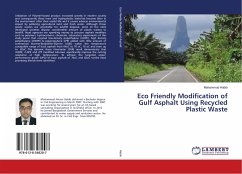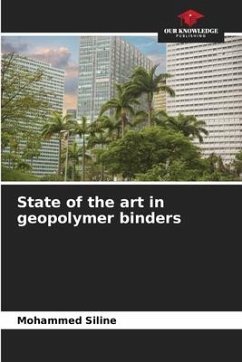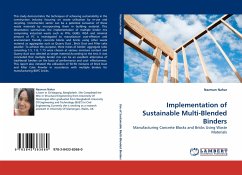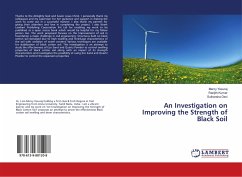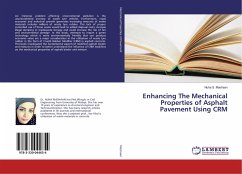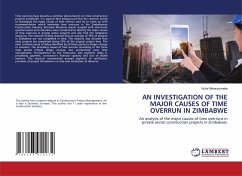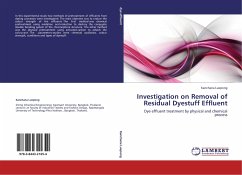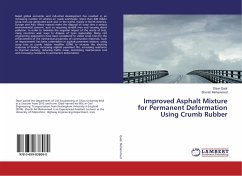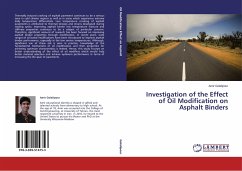
Investigation of the Effect of Oil Modification on Asphalt Binders
Versandkostenfrei!
Versandfertig in 6-10 Tagen
50,99 €
inkl. MwSt.

PAYBACK Punkte
25 °P sammeln!
Thermally induced cracking of asphalt pavement continues to be a serious issue in cold climate regions as well as in areas which experience extreme daily temperature differentials. Low temperature cracking of asphalt pavements is attributed to thermal stresses and strains developed during cooling cycles. Improving asphalt binder low temperature fracture and stiffness properties continues to be a subject of particular concern. Therefore, significant amount of research has been focused on improving asphalt binder properties through modification. In recent years, wide ranges of oil based modifica...
Thermally induced cracking of asphalt pavement continues to be a serious issue in cold climate regions as well as in areas which experience extreme daily temperature differentials. Low temperature cracking of asphalt pavements is attributed to thermal stresses and strains developed during cooling cycles. Improving asphalt binder low temperature fracture and stiffness properties continues to be a subject of particular concern. Therefore, significant amount of research has been focused on improving asphalt binder properties through modification. In recent years, wide ranges of oil based modifications have been introduced to improve asphalt binder performance, especially at the low service temperatures. Although, significant use of these oils is seen in practice, knowledge of the fundamental mechanisms of oil modification and their properties for achieving optimum characteristics is limited. Hence, this study focuses on better understanding of the effect of oil modifiers which wouldhelp better material selection and achieve optimum performance in terms of increasing the life span of pavements.



